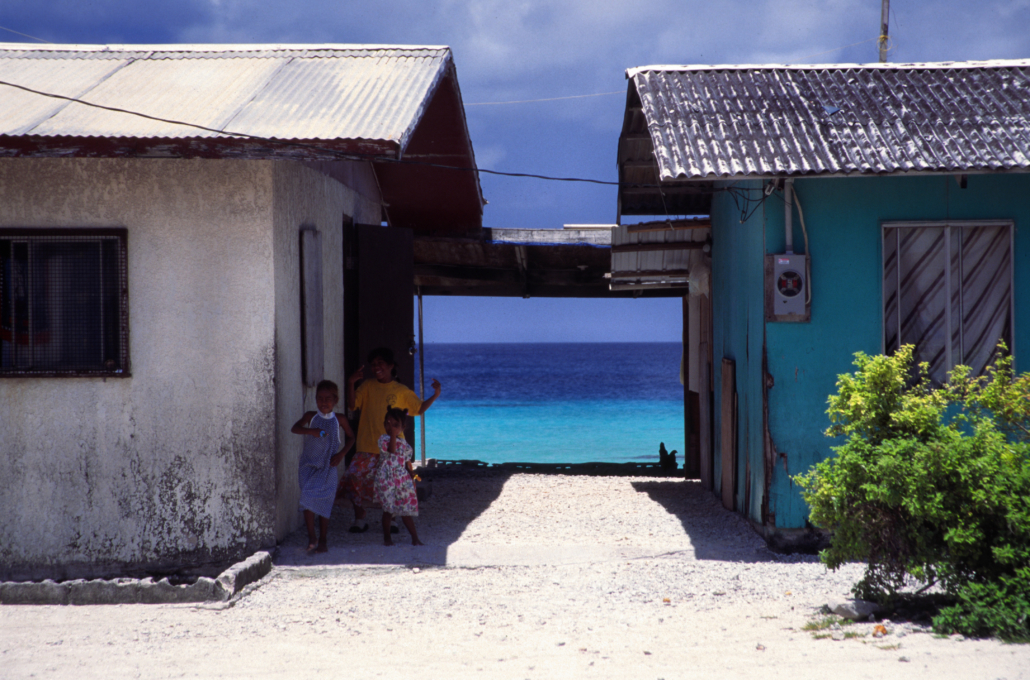Addressing Human Trafficking in the Marshall Islands

The Marshall Islands, located in the northwestern Pacific Ocean, has had its fair share of organized crime. Many in this country are in danger of human trafficking. Fortunately, the government is stepping in to address human trafficking in the Marshall Islands.
Human Trafficking
Human trafficking is modern-day slavery. Victims are often swindled for labor and sexual abuse. The International Labor Organization estimates that 12.3 million people globally have been forced into involuntary labor, involuntary child labor, bonded labor and sexual subjugation.
In order to combat this, the U.S. Congress created the Trafficking Victims Protection Act to end worldwide human trafficking. A specific tool utilized is the annual Trafficking in Persons Report, which evaluates the government response in countries with reputations of human trafficking. The governmental endeavors to end trafficking are the foundations for the annual country report of three tiers.
The Marshall Islands rank in Tier 3, which means they do not entirely act in accordance with the minimum guidelines for the abolishment of trafficking and there are no major efforts to accomplish this. Sex trafficking in the Marshall Islands is of particular concern, with many women of Marshallese and East Asian descent being targeted.
Recent Example
In late 2019, Paul Petersen, a public official in Arizona, was arrested for the trafficking of Marshallese women. The multi-million dollar scheme involved smuggling pregnant women into the U.S. and then profiting from their newborns.
As the owner of an adoption law firm, Petersen falsified documentation on the mothers’ residency and then charged parents in the U.S. tens of thousands of dollars for the newborns. According to Duane Kees, the U.S. attorney for the western district of Arkansas, “Many of these mothers described their ordeal as being treated like property.”
While this case is being addressed in the U.S., efforts to prevent women from being taken from the Marshall Islands are also needed. One of the difficulties of human trafficking, however, is that it often occurs internationally, making it hard to find traffickers and their victims.
Government Efforts
The Republic of the Marshall Islands’ government is taking action to eliminate human trafficking. These actions include starting their first trafficking prosecution in just under a decade while also initiating an investigation on an immigration officer for reputed trafficking collaboration. Due to increased efforts, the Marshall Islands have recently risen to Tier 2.
Efforts to address human trafficking in the Marshall Islands can be categorized as prevention, protection or prosecution. To help prevent human trafficking, the government banned unregistered visitors on foreign fishing boats in Majuro. It also required crewmen to bring their ships in by nightfall.
To protect victims of human trafficking, the government created a network of safe houses for women aged 14 to 18. Other protection services provided by the government include legal assistance, counseling and examinations for sexually transmitted diseases.
In terms of improving prosecution, the government has been establishing more specific punishments for human trafficking. The Prohibition of Trafficking in Persons Act criminalized labor and sex trafficking and authorized punishments of up to 15 years in prison as well as a fine of $10,000.
Moving Forward
Human trafficking in the Marshall Islands has decreased, but more work needs to be done to eliminate it completely. Moving forward, the government and other humanitarian organizations must prioritize addressing the root causes of trafficking, protecting victims and finding and prosecuting traffickers. Hopefully, human trafficking will continue to be on the decline in the coming years.
– Shalman Ahmed
Photo: Flickr
